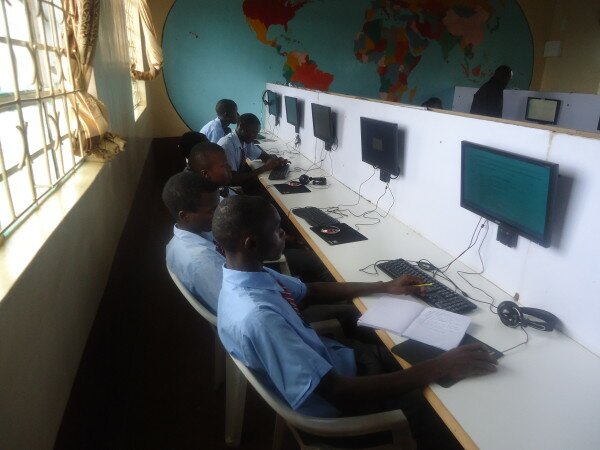
Students at one of the Microsoft e-learning centres
Internet connectivity and affordability are what will help Africa’s development, especially through young people and small and medium enterprises (SMEs) known to drive economic development, according to Louis Otieno, director at Microsoft 4Afrika.
Otieno told HumanIPO he will be taking this message to Brussels, Belgium, when he hosts a roundtable at the EU-Africa Business Forum today to discuss relations between Europe and Africa.
“It becomes important to share the learnings from our own pilots, motivate the public sector in relevant industries to start the process of enabling partnerships that will make this business a sustainable model then seek partners to help you scale the region,” said Otieno of the need to participate in such forums.
According to Otieno, Africa has great potential as a market, as it is the youngest and one of the fastest growing regions in world, with 65% of its + 1.1 Billion population under 25 years old
“If anyone cares about the economic viability of young people then they will have to grow SMEs,” he said.
The director will be co-chairing a roundtable that focuses on development, and said to achieve this there has to be innovation, skills transfer and access to connectivity to equip young people with skills for employment and entrepreneurship.
He said African problems can be solved by African solutions, especially through youth, SMEs and policy.
“Government as an entity can either enable or inhibit the development of SMEs and youth through policy,” Otieno said.
“If an access to education, markets, health and government services is important then we need to discuss ways to connect Africa,” he said.
He said Microsoft had taken these challenges on and was addressing them through the 4Afrika initiative, under which the Mawingu TV White Spaces pilot was launched last year in collaboration with Kenya’s Ministry of ICT and Indigo Telecom.
The project seeks to bring low-cost, affordable internet to previously un-served communities in rural Kenya as part of the initiative’s efforts to improve the continent’s global competitiveness.
Otieno believes this technology has the potential to deliver on the promise of universal and affordable high-speed wireless broadband for Africa, with projects also being piloted in Dar es Salaam, Tanzania, and Limpopo, South Africa.
The effect of the project has been ICT labs installed at schools without electricity, each with sufficient capacity to power premise equipment and access devices such as tablets and e-book readers.
Indigo has supplied the schools with 7m2 solar panels, which produce approximately 4.5 kWh per day.
Currently, Network deployment is underway at the four universities in central Dar es Salaam, comprising 74,000 students, with the company looking forward to mirroring the integrated technology solutions which incorporate access to devices and relevant services.
“Our project partner, UhuruOne, expects the network to go live in the next few months. We are really looking forward to delivering affordable device, service, and connectivity solutions to Tanzanian university students,” said Microsoft’s Otieno.
He said Microsoft will be tabling several recommendations at the EU-Africa forum that promote the affordability of devices, potential funding models as well as policies that allow for sustainability and scalability of innovation and investment.

















